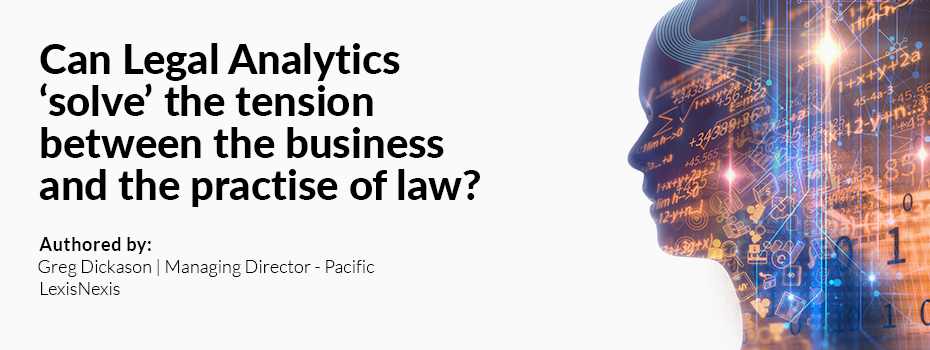
Can Legal Analytics ‘solve’ the tension between the business and the practise of law?
18 November 2021 17:58
Marrying the business and the practise of law is hard. You need to produce quality work, to a tight timeline, and often with a client who expects perfection at a low price.
Efficiency in the process cannot compromise you utilising the intellectual knowledge you have built up as a practising lawyer. Your client expects your experience, brought to bear on the exact nuances of fact and law of their matter.
Well-designed legal analytics should reduce the time it takes to understand the pertinent issues in a matter, while providing context for where the law stands on those issues and do it in a way that is easily digestible for a busy lawyer.
Analytics on its own, with pretty charts, fails if it is not focussed on improving your time effectiveness. Does it get you to understanding the relevant law quickly? Does it highlight and link to precedents in caselaw in ways which are easily able to be understood? Is it simple to correlate facts, legal issues, and outcomes such as size of penalty? Does it help in the communication with your client?
A good legal analytics system may not be pretty, but it needs to be functional and efficient. Specifically:
- It should enable you to be more efficient in the practice of law, both for research and client communication:
- You should have insights into litigation outcomes for similar matters
- You should be able to use the data to help manage client expectations of potential outcomes
- You should be able to build case strategies based on understanding previous outcomes, parties and judges involved, and matter types
- You should be able to link through to the underlying data, using analytics as the starting point for legal research
- It should assist you to improve your business of law:
- Help with business development. Are you visible enough to potential clients? Are you getting the work your firm has expertise in? Who are your major competitors and what cases are they getting?
- Ensure you price cases appropriately
- Provide insights into where you can expand your services. What other practise areas or jurisdictions could you provide services to? What volumes and types of matters are available, and would these provide a profitable return?
Both Australia and New Zealand lag the United States in using Legal Analytics to change practice and drive efficiencies. Our lower volumes of cases1 hampers the development of efficient Artificial Intelligence models that are at the core of good analytics tools, and our law firms tend to be more apprehensive about the organisational model changes needed.
Change is coming though. A recent study2 by ALM Intelligence in collaboration with LexisNexis US provided insights from 163 large law firm professionals to gain an understanding of the adoption, application, and value of legal analytics. The key findings of the study indicate 80% of law firms use analytics for decisions regarding the business of law while 77% use analytics to help with the practice of law. 98% of the lawyers said that analytics has helped improve their firm’s performance while 90% felt it has made them a better, more informed, more efficient and effective lawyer.
Legal research providers like LexisNexis have global footprints and hence visibility of which Artificial Intelligence models are more efficient and can be applied in the Australian/ New Zealand context. They are also able to keep up with the rapid changes in Artificial Intelligence for natural language. Good, usable, analytics is now available to Australian and New Zealand law firms.
Although the impact on law firms may be profound, the United States experience does show that analytics can be an aid in change and not a disrupter. Analytics can provide context and insights to lawyers, helping to ground their legal reasoning with case outcomes, litigation profiles, and reasoning of judgement, across more cases than they could previously efficiently process. This improves the quality of client work while potentially also decreasing the time taken on a matter.
More effective insights create better quality outcomes for clients without increasing the workload on overworked lawyers. Analytics is definitely a step towards ‘solving’ the natural tension between the business and practise of law.
To know more about LexisNexis Legal Analytics solutions contact us on 1800 772 772 or email Sales.Enquiries@lexisnexis.com.au
1 In the past five years (2015-2020) the United Stated Supreme Court alone has seen 44,000+ written judgments while the Federal Court of Australia and the Federal Court of Australia full court together in the same time frame have recorded approximately 11,000 written judgments. Source- Statistics drawn from the US Supreme Court on Lexis Advance US and Federal Court of Australia and Federal Court Full Court on Lexis Advance Pacific
2 2020 Legal Analytics Study; survey conducted in December 2019. https://www.lexisnexis.com/supp/largelaw/no-index/lexisnexis-alm-legal-analytics-study.pdf
Contact our Experts Now

 LexisNexis
LexisNexis